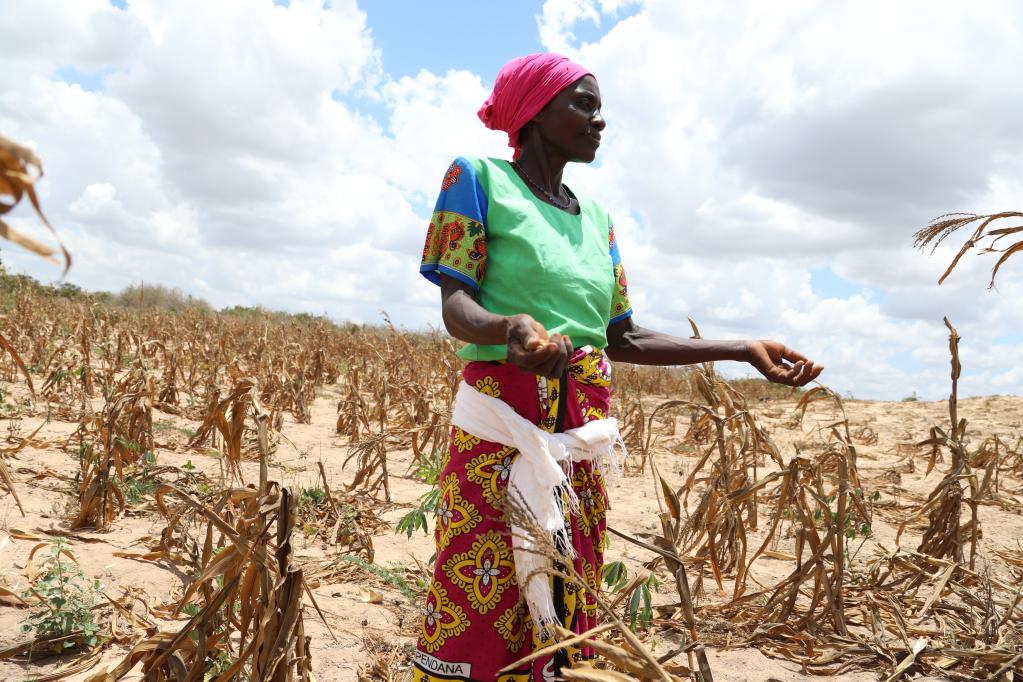U.S. output inflation drags the prospect of Africa's economic growth
Author:Xinhuanet Time:2022.09.21
Xinhua News Agency, Nairobi, September 20 (International Observation) U.S. output inflation drags the prospect of Africa's economic growth
Xinhua News Agency reporter Li Zhuoqun
As the Fed's continuous radical rate hike output inflation this year, and global food and energy prices soared, the inflation pressure in African countries has increased. Analysts pointed out that although the African economic recovery was strong in 2021, the recent interest rate hikes in Africa to respond to inflation and faced the grain crisis, the uncertain prospects of economic growth have increased, and the downlink risks are prominent.
High inflation affects economic growth
Recently, African countries have high inflation, and the cost of life has risen. The African Development Bank previously released the "African Economic Outlook for 2022", which is expected to reach 13.5%of the average inflation rate in Africa this year.
McDonald Opudo, director of the Kenyan National Bureau of Statistics, said that from July 2021 to July 2022, the country's inflation rate rose mainly due to the price of food and non -alcoholic beverages rising by 15.3%. The latest data shows that the inflation rate of Kenya in August reached 8.5%, a new high in 5 years.
In Nairobi, the capital of Kenya, the citizen Qiku Michael felt that the cost of life was rising sharply: "In the last month, the staple food price has been scary. Fruits have become more and more luxury."
The inflation situation in other African countries is not optimistic. Nigeria, the largest economy in Africa, reached 19.64%in July this year. South Africa's inflation rate reached 7.8%in July, the highest level since the 2008 international financial crisis.
In order to relieve inflation pressure, the central banks of African countries raised interest rates and tightened liquidity, and economic growth may slow down. The African Economic Outlook Report 2022 predicts that the economic growth rate of Africa in 2022 is expected to be 4.1%, which is far lower than 6.9%in 2021.

On March 23, Zavadi, who was not harvested, stood frustrated in the withered cornfield in Kenya Kilifei. Xinhua News Agency reporter Dong Jianghui
Grain crisis exacerbates economic difficulties
African grain has insufficient self -sufficiency capabilities and needs to be imported. The upgrade of the Ukraine crisis affects the import of food in Africa. While exacerbating the inflation of African countries, it also caused food security.
According to UN data, from 2018 to 2020, Africa imported $ 5.1 billion wheat from Russia and Ukraine, accounting for 44%of the total imports of African wheat.
After the Ukrainian crisis was upgraded, the West imposed sanctions on Russia, and African grain imports continued to be blocked.
At present, Africa's horn areas have encountered the worst drought in decades, and the production of grain production has fallen sharply. In the southeast of Kenya, some agricultural regions may be reduced by nearly 80%from the average level in the past five years this year. According to data from the Kenyan National Drought Administration, about 4.1 million people in the country are facing grain safety issues.
The United Nations Food and Agricultural Organization warned in the first half of this year that 346 million people in Africa were affected by the grain crisis. Among them, more than 14 million Nigerians are experiencing serious food and nutrition crisis, and this number will continue to increase.
The latest data from the National Bureau of Statistics of Nigeria showed that Nigeria's food inflation rate reached 23.12%in August this year. Some surveys show that many Nigerians now buy food with 85%income.
Input inflation drags the economic prospects
Since March of this year, the Fed has continuously raised interest rates for domestic high inflation, pushing up the US dollar index and international commodity prices, making imports of imports in other countries and regions, and high input inflation. At the same time, some African countries have accelerated depreciation and even face the risk of debt defaults.
Nigeria International Relations Expert Charles Oukanaisjus pointed out that the economic fundamentals and foreign trade activities of African countries such as Nigeria are closely linked to the US dollar reserves, which means that the United States can transfer inflation pressure to African countries through monetary policy.
The Minister of Finance of Zimbabwe Enskbe said that Zimbabwe has long suffered illegal sanctions in the United States and Western, and input inflation has exacerbated domestic inflation. The fragile economic snow has been worse, and the local currency depreciates sharply.
Kenya economist Gezjia believes that many African countries rely on imports in food and crude oil, while the Fed's interest rate hike promoted the strengthening of the US dollar, which directly increased the import costs of these necessities. At the same time, many international investors have evacuated Africa due to the Federal Reserve's interest rate hike, affecting the prospects of Africa's economic development.
Georkeva, president of the International Monetary Fund (IMF), said that the current global inflation is higher than expected and continuously spread to the field of food and energy, prompting major central banks around the world to increase interest rates and implement currency tightening policies. Most countries are facing the dual pressure of high inflation and high debt, bringing greater risks to economic and social development.
IMF data shows that 22 African countries are currently in debt dilemma or have high risks in debt predicament.
- END -
American judges approve the appointment of independent commissioners to review Haihu Manor seizure objects
Xinhua News Agency, Washington, September 5th (Reporter Sun Ding) The judge of the Federal District Court of Florida, the Federal District Court of Florida, approved an independent commissioner on the
Korean media: Chinese semiconductor is going to catch up with South Korea
Zhang Jing, a special reporter in Korea in KoreaSouth Korea ’s“ Korean Daily ”reported on the 25th that the market research institution TrendForce recently released the world’ s first quarter semi...